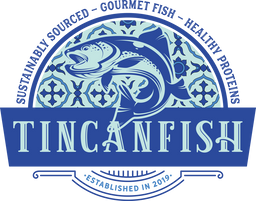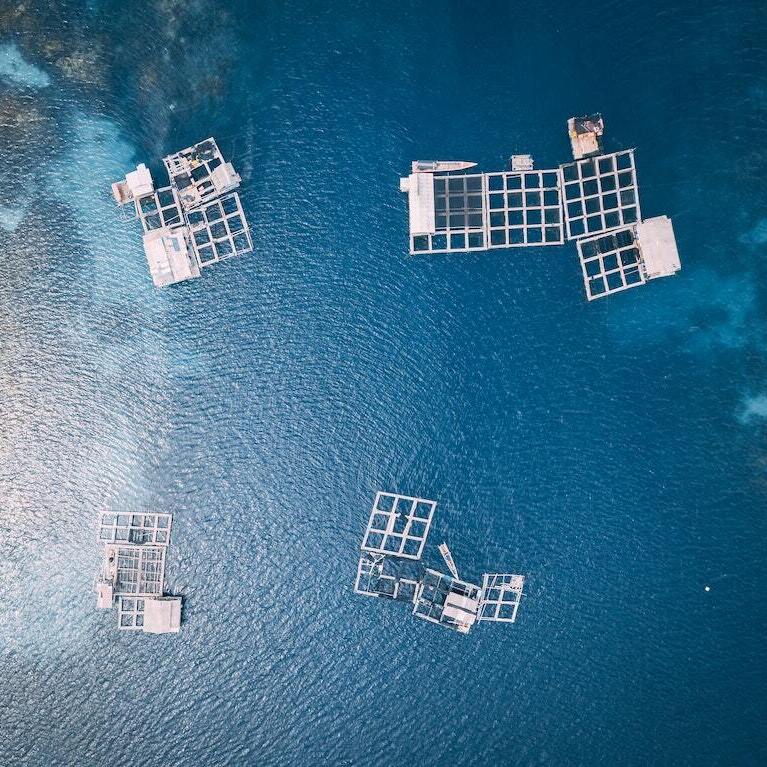As the world's population continues to grow our planet’s resources are increasingly strained. Farming allows us to make more food than harvesting from nature. This is why most food is produced on large farms.
One key exception is seafood. Wild-caught fish is generally preferred by cooks. Farmed fish also has a bad reputation for being environmentally unfriendly. However, sustainable aquaculture is possible and can be a viable source of protein as we move away from beef and other resource-intensive meats.
What Is Aquaculture?
Aquaculture is the cultivation of food in an aquatic environment. This includes salmon, seaweed, and everything in between. Aquaculture is generally done in natural bodies of water. However, it can also be done in tanks.
Aquaculture is useful in controlling the production of seafood. By cultivating seafood in a controlled environment, farmers can reliably produce food. Aquaculture does not deplete natural populations.
Marine Aquaculture
Marine aquaculture is the cultivation of oceanic species. Some of the most common species include oysters, clams, mussels, shrimp, salmon, and algae!

Freshwater Aquaculture
Freshwater aquaculture is the cultivation of freshwater species. This is the most common form of aquaculture in the US, accounting for 70% of the industry. Freshwater aquaculture produces primarily trout, catfish, and tilapia.
Aquaculture Is Common
Though wild-caught fish is still readily available and popular, farmed seafood is on the rise. Aquaculture accounts for 42% of the seafood we consume annually. As demand increases, aquaculture will continue to grow.
It is essential that aquaculture is done in a sustainable way. As it becomes increasingly common, the potential impacts grow. Practicing sustainable aquaculture will help protect our planet.

When Makes Aquaculture Sustainable?
Though farms are essential for a growing population, their impacts aren’t always good for the planet. Different techniques have different effects. This is true for cultivating food on land and in the water.
The practice of farming fish isn't generally associated with sustainability. However, aquaculture has the potential to be sustainable. Practicing aquaculture can decrease the environmental impacts of fishing. As demand for fish grows, wild populations take a hit. By farming fish the impact on wild populations is minimized.
There are many ways to practice aquaculture. Some techniques are more sustainable than others. There are not currently strict guidelines for what constitutes "good aquaculture". Techniques such as inland closed-systems and open ocean aquaculture can decrease environmental impacts.
General practices such as effective containment and runoff management are also essential. Developing guidelines and regulations is an important step in making aquaculture sustainable.
As global demand for fish increases, industrial fishing can threaten natural populations. Aquaculture has the potential to fill this demand in a sustainable way.
Is My Seafood Sustainable?
It can be difficult to know whether the farmed fish you buy is sustainable or not. The most important thing is to know your sources. Knowing which fisheries produce the fish you eat is essential to ensuring sustainability.
There are a number of certifying organizations that set standards for fisheries. These include the Marine Stewardship Council, Friend of the Sea, and International Pole and Line.
Buying sustainable seafood is a great way to support good practices. By doing the research to buy sustainably farmed fish, you can support these practices.

Are Farmed Fish Healthy?
It is well known that fish are full of nutrients! They provide tons of nutrients including omega-3 fatty acids.
Farmed fish have a reputation for being less nutritious than wild-caught fish. Though this can be true, it all depends on the diet of the fish. When fed a good diet, farmed fish contain the same nutrients as their wild counterparts.
Diet is another reason why it is important that you know which fisheries produce your food.
Aquaculture is an important tool for sustainability. Though it is not always good for the earth, aquaculture has great conservation potential. When done correctly aquaculture can decrease environmental harm caused by overfishing practices.
Article written by Casey Hofford on June 1, 2020.


